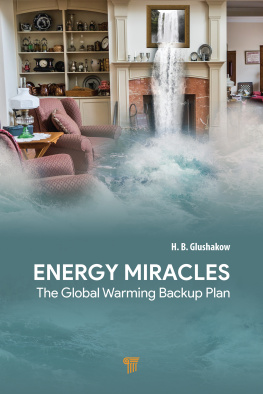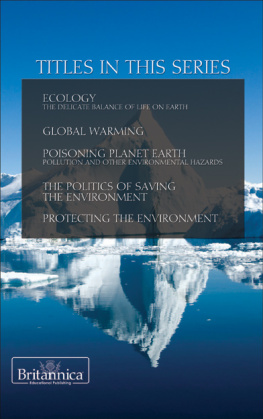Institutional Bias
A. W. Montford
Prologue
The Institute of Physics (IoP) is the UK's learned society for physics and also its professional body for physicists. While it remains a registered charity, from its nineteenth century origins it has grown into a vast organisation of 45,000 members with a multimillion pound income derived from both its memberships, conferences and its stable of academic journals. Alongside this vast money-making machine are the network of member groups: the local branches and the special interest groups, covering everything from polymer and plasma physics to the history of physics. The majority of the IoP's income is swallowed up by central costs, with only a small stipend allocated to each group to fund meetings and visiting lecturers. And it is not just the money that has all but disappeared from the groups either. The voice of the membership is increasingly being silenced, with headquarters staff having arranged to abolish the annual representatives meeting, at which grievances had formerly been aired. With power centralised it has now become possible for the leadership to deal with 'difficult' groups.
The skirmish
There was a surprise at the 2007 Annual General Meeting of the Energy Group of the IoP. A small surprise, it must be said, but nevertheless one that turned out to be significant. Usually those standing for office were familiar faces from among those who regularly attended the group's meetings, but this time round there was a comparative stranger among the candidates. Colin Axon was a chemical engineer from Oxford University who had a particular interest in geoengineering. He had approached the secretary a few weeks earlier inquiring about the possibility of becoming involved in the Energy Group. Nobody thought anything of it at the time.
In fact the news of Axon's approach could not have been more welcome to group chairman Peter Gill. The Energy Group was among the busiest in the IoP and Gill was always looking for people to share the burden of keeping the show on the road. Axon's approach was therefore enough to make Gill's day, but when he was told that Axon had expressed an interest in running the group's newsletter, he could scarcely believe his luck. The newsletter was a fearsome burden: with the group being so active, there was a constant stream of meetings to announce and report upon, as well as a steady stream of articles from members and others who wanted to air their views. The group was run entirely by the committee, all of whom had busy professional lives and it was therefore hard, if not impossible, to get anyone to take on the position of newsletter editor. In recent years Gill had therefore taken to rotating responsibility for each issue among the members of the committee. This ensured that the newsletter appeared on a regular basis, but also meant that the quality and consistency of the presentation was erratic to say the least. Now at last it looked as though the group might be able to start to produce consistent, professional-looking publications every time.
Gill's enthusiasm for Axon's involvement was clearly shared by the other committee members no doubt more than happy to see someone else doing the work. It is therefore perhaps unsurprising that the candidacy was successful and before long Axon was hard at work on the first newsletter for 2008. Gill was pleased to note that it looked very much as if the quality was going to represent a big step up from what the group had put out previously.
It had all started so well, but it was not long before the happy glow surrounding Axon's appointment began to fade. The trouble began just as the deadline for the Spring 2008 newsletter was approaching. Terri Jackson, an active committee member who helped found the Energy Group and had been its first chair, sent Axon a link to a US Senate report on global warming, asking that this be included in the upcoming issue. It was a simple request, and in normal circumstances nobody would have given it a moment's thought. But strangely, when the newsletter appeared the link was nowhere to be seen.
Jackson was very annoyed and emailed a letter to Gill asking that he do something about it. Gill assumed that Jackson had simply missed the deadline or that the article had not been of sufficient quality to merit inclusion and he therefore did what he could to smooth the waters:
I believe that Colin circulated the Spring edition of the Newsletterrecently and so the earliest that the links you suggest can be put in a Newsletter will be the Summer edition. May I suggest that to encourage people to have a look at the material you write a short piece introducing the links?
And as he pointed out, some of his own suggestions of interesting articles for inclusion hadn't appeared either: it certainly wasn't a question of favouritism.
Gill might have been minded to brush the matter off as a storm in a teacup, but he soon found himself wondering if there might be a real problem. As Jackson explained in her reply, the link had actually been sent several weeks before. She had heard nothing from Axon and it therefore looked very much as if a conscious decision had been made to keep the article out of the newsletter; as she went on to explain, she was worried that what had at first appeared to be an oversight may have been a deliberate and malicious act:
I hope that Colin is not acting as a censor against anything that is skeptical. That should not be his position as newsletter editor. I have asked him why he did not publish the US material and his only comment is that he received it. I will insist that this US Senate report is published in the next issue.
In Jackson's view Axon should never have been appointed as newsletter editor and she noted darkly that his research work was dependent on government grants, a source of funds that could dry up if he were suspected of harbouring any sympathy towards global warming sceptics.
Jackson's vehemence took Gill aback, but as he cast his mind back to Axon's appointment, he started to wonder. Had he missed some earlier hints that Axon was going to be a source of trouble? In particular, soon after his appointment, Axon had made a comment that seemed to suggest that he saw his new role as involving the setting of an editorial line for the newsletter. This was not at all the way Gill saw the position, and at the time he had corrected Axon, explaining that the editor was only expected to prepare the contributed articles for publication, with the newsletter intended to reflect the full range of views of the group's members. But as he tried to recall the details of what they had both said that day, he could not help but wonder if Axon had actually acknowledged this point. Had he simply wriggled off the hook, moving the conversation on to other matters?
There was something else nagging away in Gill's mind too. A week earlier he had circulated to the rest of the committee a link to a story in The Australian , suggesting that this would make an interesting article for the newsletter. The story concerned the lack of a rise in global temperatures over the previous ten years and was therefore the kind of thing that could provoke some interesting exchanges of views. In normal circumstances, Gill would have expected the idea to get little if any reaction at all. However, this time he received a series of quite unexpected rebuffs from some of his colleagues on the committee. The first was from deputy chairman Simon Roberts, a futurologist at engineering firm Arup and the author of several books on photovoltaics:
Actually it's not of interest at all.
Roberts' position had quickly found support from Axon and from Peter King, a professor in the Earth Sciences department at Imperial College London, and it had soon become clear that the idea of discussing the merits of the article was a non-starter. At the time, Gill had shrugged the rejection aside, thinking little of it. Now, however, in the wake of the failure to include Jackson's US Senate material he started to wonder if a pattern was emerging. Was something untowards taking place?












